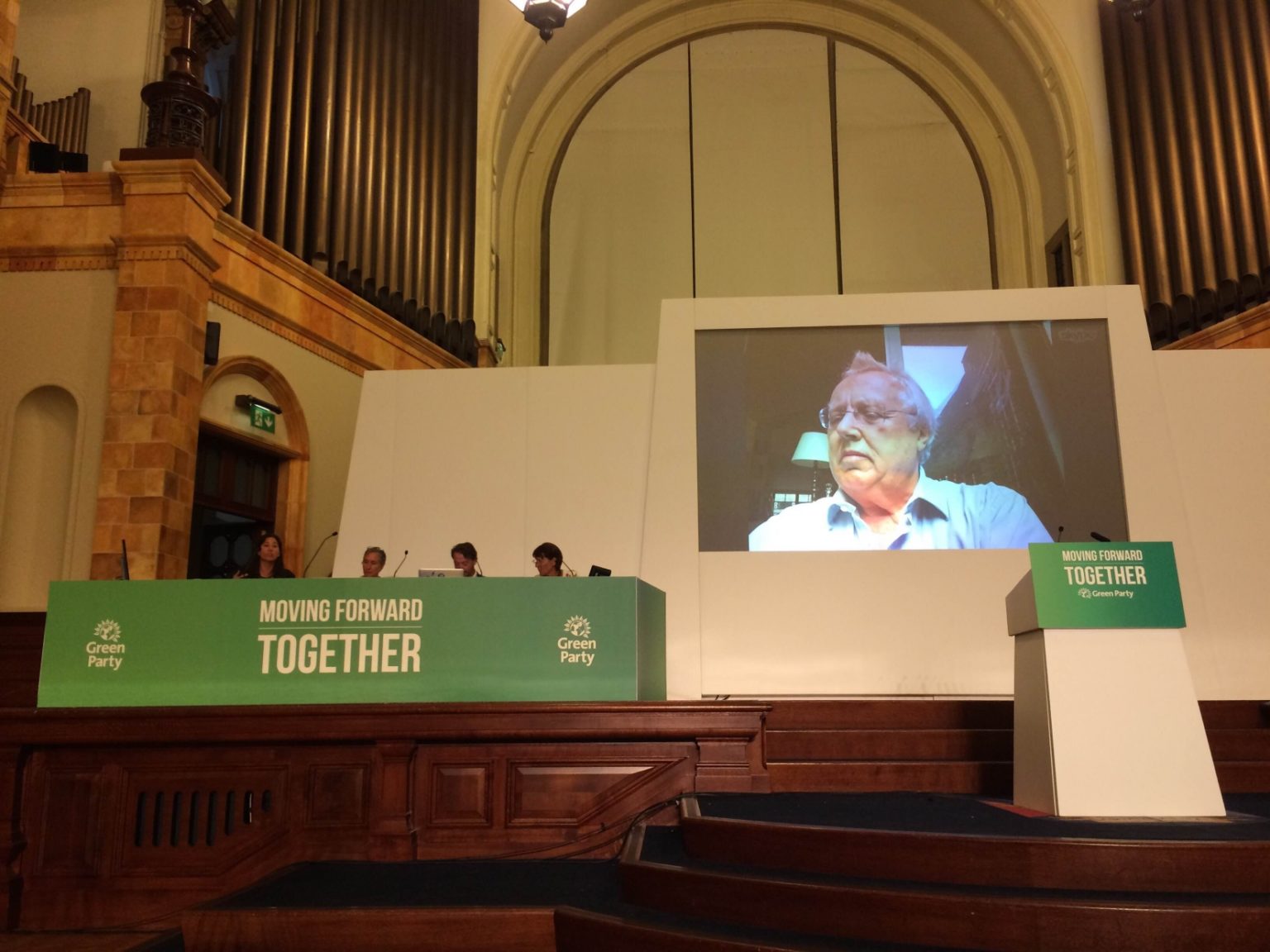In an historic step in the fight against climate change China and the US ratified the Paris climate deal today.
But Britain and most of Europe are yet to do the same, and the reasons why were scrutinised during a panel discussion at the Green Party Autumn conference.
Experts discussed just how much has really changed since last year’s COP21 Paris Agreement and asked whether it was the start of an energy revolution and when will fossil fuel majors start to change their course.
On the panel were Clare Shakya, climate change group director at the IIED (International Institute for Environment and Development) and former Department for International Development (DFID) negotiator at Paris, Anthony Hobley, chief executive of Carbon Tracker Initiative, and Keli Yen of Global Greens. Tom Burke, Chairman of E3G, appeared via a videolink.
‘Major Inertia’
Hobley of Carbon Tracker said there was “major inertia” in the energy and financial industries to act on the “financial case for action on climate change”.
Major energy companies, who attended Paris and committed to the 2 degree threshold, “could effectively be worth 100 billion more if they moved onto the 2 degree pathway over the next 30 years,” Hobley claimed.
But he accused companies like BP, Shell, and Exxon, along with OPEC, of overstating energy demand and underestimating the role of renewables.
Companies like Shell, Exxon, BP overstating energy demand & underestimating role of renewables – @arhobley #GPconf pic.twitter.com/n2lrtqnh6A
— Victoria Seabrook (@v_seabrook) September 3, 2016
These companies could be worth more if they moved from a growth model to a run-off model – that is, still suppling the fossil fuels we need over the next 30 years during the transition to clean energy, but supplying less and less each year – and pulled back from high-cost investments like the Arctic and ultra-deep sea, he said.
“Their share price would be more stable, and their ability to continue to pay the dividend on which many of the pension funds depend and are quite frankly hooked on would be preserved,” he said.
“Whereas, if they continue on a growth model, pouring billions, trillions into exploring and developing new fossil fuel assets, they’re putting their share price and effectively their financial stability at risk.”
Brexit Britain
Clare Shakya said Brexit posed a real risk to Europe’s ratification of the agreement.
She said: “The danger is now that, if the UK stops negotiating as a part of Europe, Germany will be isolated pushing on the progressive side, whereas countries like Poland are pushing very heard in the other direction.
“What happened in Paris was that Germany, France and the UK bulldozed through for the rest of Europe… the UK is potentially no longer clearly going to be part of this progressive group.
She also said that in Brexit Britain there was a “danger that people think the deal has been done in Paris” and therefore the sooner we ratify, the sooner we “send a signal that Europe has to act as a whole”.
‘Getting the Politics Right’
E3G’s Tom Burke was more optimistic than the other speakers: “I’m pretty hopeful around the way things are shaping up around Paris and around the national climate scene.
“There’s a very real prospect that we will end up with this agreement in force within a year, which is absolutely unprecedented. We should take hope from the fact that climate change seems to be the one area in which the world is still insisting on cooperating.”
Burke said the trick now “really is all about getting the politics right” and that there already had been a “fundamental change in the political risk equation”.
“Political risk used to be that if you did something on climate change then it was going to hurt you and you would become [an] unpopular government. I think we’re reversing that trend. I think now for governments to be perceived as failing to act adds to their political risk.
“We’ve got to learn how to articulate our message in a way sounds more like it connects to lives people are living. That’s what having something to offer people really means.”
Subscribe to our newsletter
Stay up to date with DeSmog news and alerts







